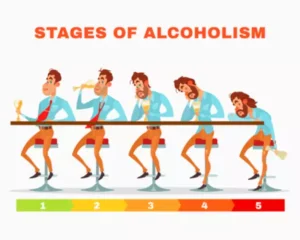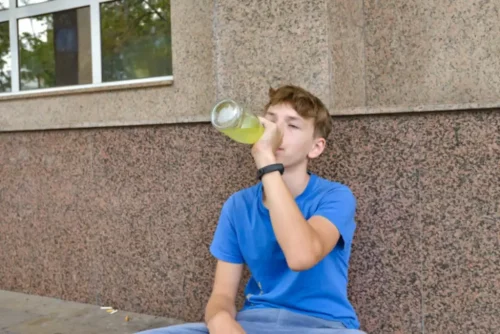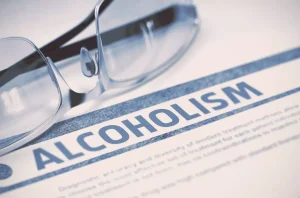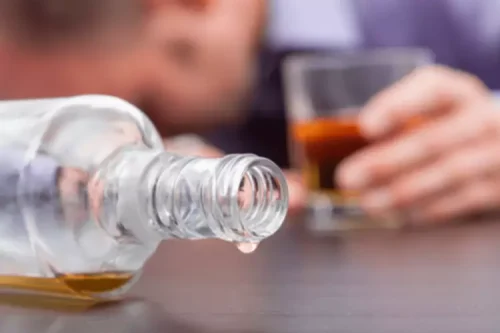
The conscious act of noticing and appreciating the positives in life and outwardly exuding positive energy and thankfulness contributes significantly to one’s happiness and satisfaction with life circumstances. Individuals who are more appreciative of their life, the people in it, and their own strength often feel more in control of their lives and emotions. These feelings are essential during a time when things may feel beyond one’s control. It may also help individuals view recovery as a challenge that will help them grow instead of as an obstacle that could overtake them. In addiction recovery, gratitude is about embracing reality while maintaining a positive outlook. It doesn’t deny the challenges, problems, or negative emotions we may face, but it empowers us to navigate them with a broader perspective and a sense of hope.

Police: 4 shot on Virginia State University campus
Practicing gratitude in recovery is not always easy, but it is always worth it. Gratitude can help you heal from the past, enjoy the present, and look forward to the future. It can also help you connect with yourself and others in a deeper and more meaningful way. Meditation is the practice of focusing on the present moment and observing your thoughts and feelings without judgment. Research shows that grateful people are more empathetic and compassionate, which means being grateful may improve your communication and trust.

Why Is Gratitude Important in Addiction Recovery?

“Gratitude is a byproduct of internalizing the 12 steps,” Jacob said. The practice of gratitude, meditation, and deep breathing does wonders for calming your physical and emotional being. When you feel overwhelmed, anxious, or depressed, try a guided gratitude meditation to help ground you. The important thing is that you learn how to focus on what’s important in the now rather than stressing about the past or future.
- Taking time to focus on gratitude, especially during the holidays, allows us to be present, content, and feel more positive emotion.
- Most of the time, our friends and family constantly do small things for us that may not seem like much, but are a consistent and constant sign of love.
- By practicing gratitude during recovery, you not only boost your resilience in times of hardship but also lay the foundation for long-term success in all areas of life.
- But addiction specialists say that it’s important to reflect on those mistakes, learn from them and make a plan to do things differently next time – not assume that you’re a failure who will never recover.
Thinking Positively Helps with Recovery
She participates in several local and statewide work groups that are addressing issues that impact people who use drugs, including buprenorphine and Hepatitis C prevention and treatment. She is also a part-time instructor at the University of Buffalo School of Social Work and a local activist. One of the biggest threats to being happy with what you have and being grateful for what you have is consistently trying to measure yourself against a standard of perfection. Unfortunately, life will always have its ups and downs, you will always have your ups and downs, and you will always have things that don’t go as planned. Whether those things are slip ups and relapses, problems at work or in your personal life, or even small things like traffic lights, you need to learn to accept them and be grateful for life anyway. Nothing will ever be “perfect”, and challenges can be used to grow, learn, and even to give you a better perspective on good things in your life.
- Using a bulletin board or poster board put pictures, graphics, or words that help you remember what you’re grateful for in life.
- Sometimes addiction can even lead to imagined negative situations, like believing friends and family who just want to help are against you.
- There are plenty of ways to be generous each and every day, but recognizing the opportunities that come your way takes effort and attention.
- Indeed, the strength of Exponents that was gleaned from the COVID crisis, was the forging of a “community of hope”.
- It is a habit that you can develop through regular practice and reflection.
Design for Recovery offers the skills and support for lifelong sobriety. Being around people who are optimistic, supportive, and encouraging can boost your mood and inspire you to perform gratitude more often. Writing down what you feel thankful for helps you notice and remember the good things in your life and creates a record that you can look back on when you need a boost of positivity. You can do this in the morning, at night, or anytime during the day that suits you. Some people may think that gratitude is simply expressing appreciation or saying thank you to others.
CVFC is a community based not for profit provider of substance abuse education, prevention, intervention, and treatment services in Clinton County, NY. Champlain Valley Family Center also delivers specialized programming and related services to the adolescent population. During the journey, every step along the way can and should be a source of greater hope and optimism for the future you are working to create for yourself. Practicing gratitude allows you to “switch gears” mentally and see the positivity and hopefulness in the process. Through this change in perspective, you can renew your strength and regain momentum to propel you toward your goals. During recovery, it is natural to focus on one’s self and all the difficulties and challenges that are inherent in the process of becoming sober.
Gratitude is Good for Your Body, Mind, and Spirit
These thoughts, as mentioned, can tend to be negative, always seeing what is wrong and what we don’t want. However, if you are able to take that negative event and laugh it off or just forget about it, the day often turns around and is a good one. The key is to not let the bad days take over or become too frequent. Many times people think, sure but I can’t control what goes on around me and what others do and say. And while this is completely true, what we can control is our thoughts.
Substance Use Treatment
After 10 weeks of study, those who wrote about gratitude were more optimistic and felt better about their lives. They also worked out more and had fewer doctor visits than those who focused on what irritated or displeased them as well as the third group who wrote about the negative gratitude recovery and positive events that affected them. Gratitude helps promote the focus on channeling inspiration and motivation into sobriety. However, someone who practices gratitude can appreciate the benefits sober living will have in their life and be better able to maintain sobriety.
- This event recognizes those in recovery and is an important opportunity to come together for support and learning.
- Many in recovery, particularly early recovery, feel guilty for past mistakes and beat themselves up.
- But it can be derailed quickly by those hopeless, negative thoughts, and the actions that go with them.
- It could be spending an afternoon with a friend or watching the sunrise.
For example, the taste of coffee or your favorite dish, your favorite TV show, learning something, a joke. Or, things such as the satisfaction from doing your work well, from cleaning your home and taking care of yourself, from taking a hot bath, or putting time and effort into learning a new skill or hobby. Whether you have a lot going on in your life or almost nothing, you can likely find even something to be grateful for. For example, if you’re in recovery, you can be grateful that you made it this far, that you had the willpower and perseverance to get that far, for any people who have helped you, or even for a roof over your head. Taking stock of what you’re grateful for should be about stepping back and taking stock of what you appreciate, what has gone right, and how things have gone better than they could have. These 8 ways to maintain an attitude of gratitude in addiction recovery will put you on the right path to staying focused on what’s important.
- Our Treatment Advisors are available 24 hours a day to help you or a loved one access care.
- Mr. Moodie has developed key strategic partnerships to ensure he can offer holistic solutions to his clients.
- He is heavily involved in community outreach programs, grassroots recovery community organizations, and advocacy groups/events.
Leave a Reply